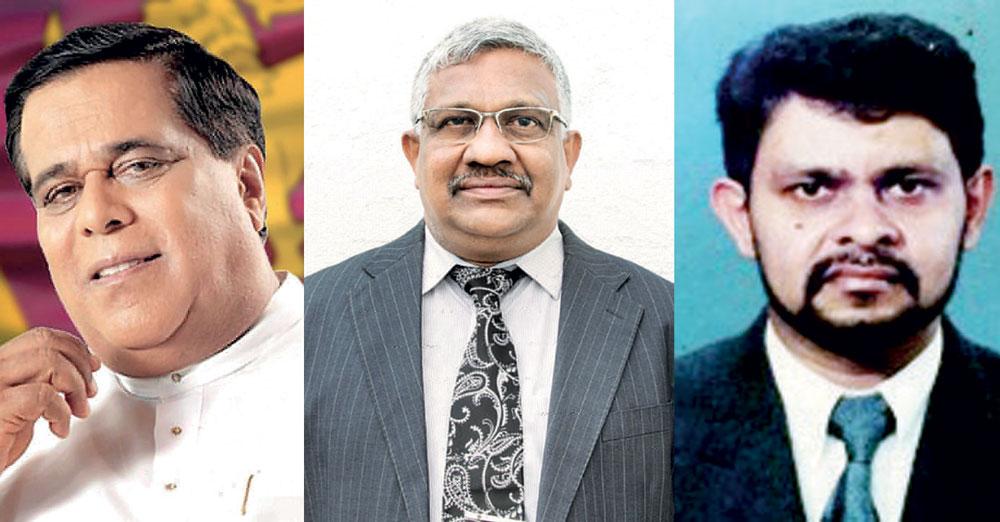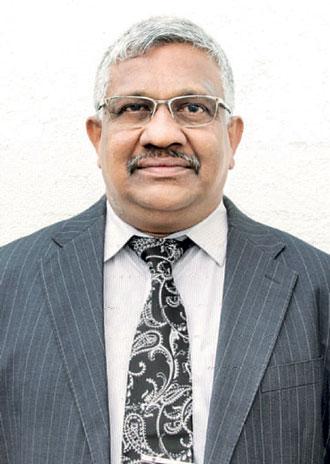Reply To:
Name - Reply Comment


 Seafarer's Day holds a special place in the Sri Lankan calendar, and as the Minister for Ports, Shipping and Aviation, I have been deeply committed to elevating the importance of this crucial profession. Over the past few years, I have spearheaded initiatives to unlock opportunities for our young Sri Lankans seeking a dynamic career at sea.
Seafarer's Day holds a special place in the Sri Lankan calendar, and as the Minister for Ports, Shipping and Aviation, I have been deeply committed to elevating the importance of this crucial profession. Over the past few years, I have spearheaded initiatives to unlock opportunities for our young Sri Lankans seeking a dynamic career at sea.
One key strategy has been fostering Government-to-Government (G2G) agreements with foreign ship owners Associations. These agreements will pave the way for our talented youth to secure positions on international vessels, gaining invaluable experience and contributing to the global maritime industry. Discussions with stakeholders and associations have been instrumental in this process.
Furthermore, we're in the final stages of finalizing and gazetting the National Marine HR Policy. This landmark document aims to streamline the recruitment, training, and career progression of Sri Lankan seafarers.
By establishing a clear framework, we can ensure a steady pipeline of qualified professionals who can navigate the exciting world of maritime trade.
This year, I had the distinct honor of officially declaring the National Seafarers' Day in Sri Lanka for 21st of March in recognition of the contribution of the Sri Lankan Seafarer to the global economy and trade. This significant step shines a spotlight on the dedication and resilience of these unsung heroes who keep our global trade routes moving.
As we celebrate Seafarers' Day, I remain committed to working tirelessly with all stakeholders. Together, we can create a thriving maritime ecosystem in Sri Lanka, empowering our youth and offering them a rewarding career path on the high seas. This will not only secure Sri Lanka’s position in the global maritime landscape but also empower the next generation of seafarers who will continue to be the backbone of international trade.
NIMAL SIRIPALA DE SILVA
HON. MINISTER OF PORTS, SHIPPING AND AVIATION

 Making Sri Lanka a seafarer hub goes beyond infrastructure and policies. It’s about empowering our youth and offering them a fulfilling and rewarding career path. We are actively promoting the maritime industry as a viable choice, highlighting the opportunities for global exposure, personal growth, and attractive compensation packages.
Making Sri Lanka a seafarer hub goes beyond infrastructure and policies. It’s about empowering our youth and offering them a fulfilling and rewarding career path. We are actively promoting the maritime industry as a viable choice, highlighting the opportunities for global exposure, personal growth, and attractive compensation packages.
On this Day of the Seafarer, I, as the Secretary to the Ministry of Ports, Shipping and Aviation, extend my deepest respect and gratitude to the incredible men and women who navigate the vast oceans. Their dedication and resilience are the lifeblood of global trade, and Sri Lanka is committed to recognizing and nurturing this vital sector.
We are at a pivotal moment, with an opportunity to transform Sri Lanka into a seafarer hub. This vision is not just wishful thinking, as a driving force behind our current initiatives. We are taking decisive steps to elevate Sri Lanka’s position in the global maritime industry. As the lead for the Merchant Shipping Secretariat, I am actively fostering a dynamic and vibrant ecosystem for seafarers. This includes streamlining procedures, enhancing training facilities, and collaborating with industry stakeholders to ensure our seafarers are equipped with the necessary competences to excel on the international stage.
One key initiative was to develop a comprehensive National Marine HR Policy. This landmark document which is in its final phase will act as a roadmap for the recruitment, training, and career progression of Sri Lankan seafarers. By establishing clear pathways and fostering collaboration between government, training institutions, and shipping companies, we can create a steady pipeline of highly skilled professionals.
K.D.S. RUWANCHANDRA
SECRETARY TO THE
MINISTRY OF PORTS,
SHIPPING AND AVIATION

 On this Day of the Seafarer, as the Director General of Merchant Shipping Sri Lanka, I extend my warmest greetings to our nation’s courageous seafarers today.
On this Day of the Seafarer, as the Director General of Merchant Shipping Sri Lanka, I extend my warmest greetings to our nation’s courageous seafarers today.
We highly admire your unwavering dedication and the vital role you play in driving the prosperity of our nation and propelling global trade.
Sri Lanka is poised for a maritime transformation, and as the Merchant Shipping Secretariat, we are committed to being the driving force behind this exciting journey. The vision of the incumbent Minister of Shipping is to create a dynamic maritime environment that fosters the growth of a 50,000-strong seafaring workforce by 2030.
To facilitate the above targets and to enhance clarity, minimize delays, and ensure consistent maritime education and training standards, I intend to form a Course Development Committee composed of professionals. This committee will review the current Maritime Education course material. The appointed committee would streamline the syllabuses and course notes, and common course material dedicated to each course would then be distributed to all approved maritime training institutes offering specific courses at present free of charge. Additionally, we intend to provide the necessary course materials at a reasonable cost to maritime training institutes wishing to commence these courses. To keep pace with industry changes, the committee will conduct annual reviews of course materials and distribute updates to approved training institutes as needed.
Also, the average age for Sri Lankan cadets to obtain their first Certificate of Competency (COC) is 26 years, whereas in other Asian countries, cadets typically obtain their first COC at the age of 22.
This has become one of the hurdles to finding job opportunities for junior officers in the emerging competitive seafarers recruiting market.
Admissions for maritime education especially for the engineering stream are significantly retarded due to these factors, according to the information received from training institutes.
There are many identified obstacles in finding the solution for the above issue, and we actively engage in implementing necessary procedures in this regard.
Also, enabling the above reforms, I believe it is high time to introduce a specific entrance examination for students completing their O/Ls to qualify for admission to marine training institutes.
However, these strategies need to be further discussed in the future with relevant parties.
Digitalization will be the heart of this strategy. Maritime education should align towards simulator-based studies & training, which is encouraged & endorsed by the IMO. We are actively implementing initiatives to streamline processes, introduce online applications for seafarer certifications, and enhance transparency within the maritime sector. These advancements will not only expedite services for our seafarers but also create a more efficient and globally competitive environment.
But technology is just one piece of the puzzle. We understand the importance of collaborative engagement with industry stakeholders.
Through fruitful partnerships with shipping companies, training institutions, and maritime associations, we have been able to spearhead numerous successful initiatives.
These partnerships will ensure the above initiatives aligning the evolving needs of the industry for preparing our seafarers for success on the international stage.
AJITH WIJESINGHE
DIRECTOR GENERAL OF MERCHANT SHIPPING, SRI LANKA